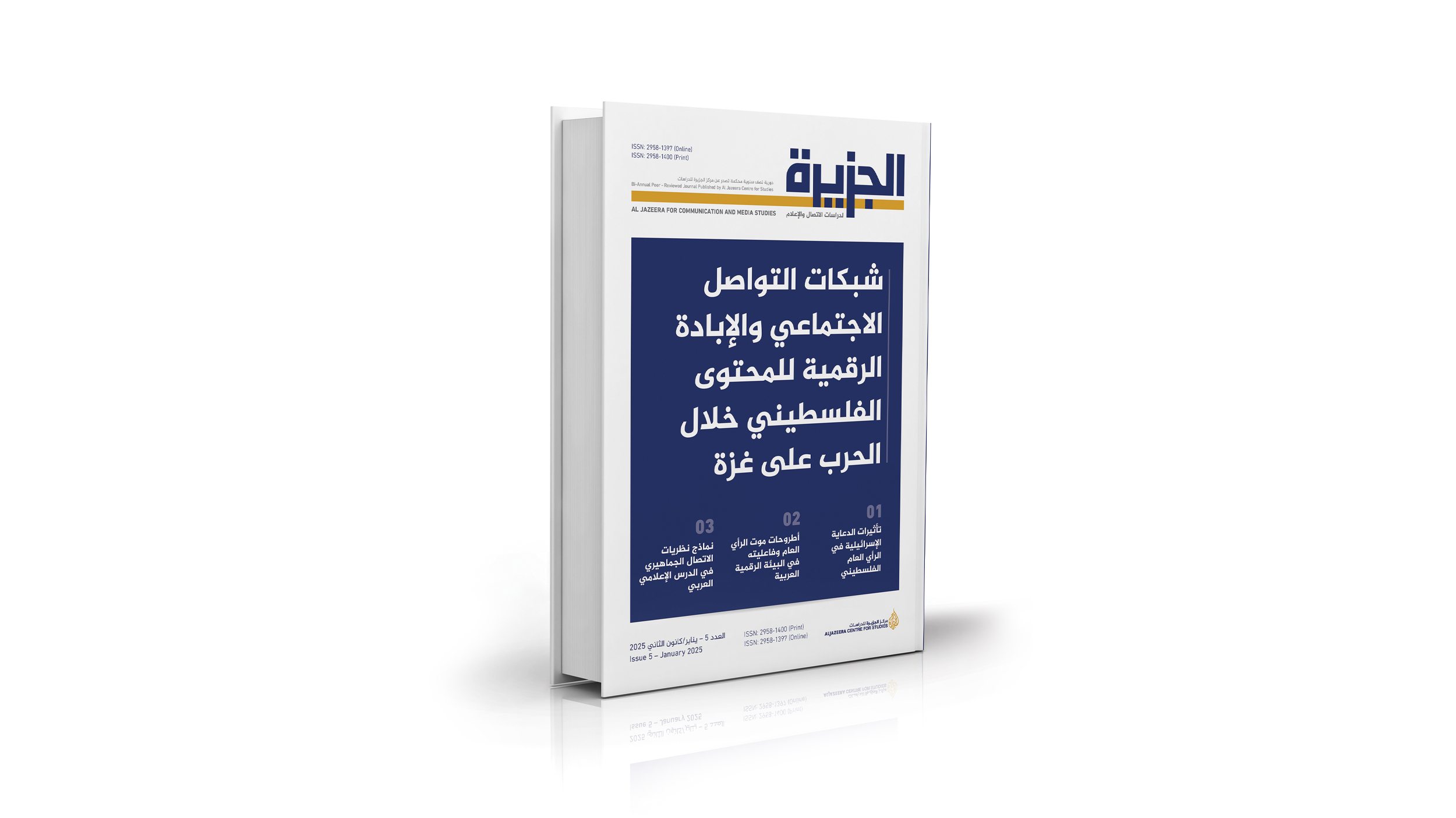
The fifth issue of Al Jazeera li Dirasat al-Itisal wa al-I’lam (Arabic: Al-Jazeera for Communication and Media Studies), released in January 2025, includes original research exploring a variety of topics. One such study, by Mohamed Ahmed Ibrahim, presents a guiding model for the references of digital genocide and its mechanisms. He identifies the systemic dimensions that explain digital genocidal actions through a case study of Palestinian content on social media platforms. Digital genocide is manifested in an outer layer composed of four components or dimensions on which social networks rely to obscure and suppress such content: (a) conceptual and terminological references, (b) political references, (c) counter-narratives to the content being targeted for genocide, and (d) the legal and legislative foundations used. The inner layer, which directly impacts digital content, includes artificial intelligence algorithms used to track targeted content, playing the largest role, alongside direct human oversight that captures any remaining content that may escape the algorithms.
Abdullah Bakhash’s study in this issue investigates the attitudes of the Palestinian public toward Israeli propaganda, based on a sample collected from 25 July to 16 October 2024. It also examines psychological warfare campaigns and their impact on this audience. The study analyses the characteristics and arguments of the propaganda discourse and focuses on tracing the effects of psychological warfare on Palestinian public opinion. In their study, Mahmoud Alhirthani and Shaymaa Shihab analyse the narrative techniques and characteristics of Western media coverage of human rights in Palestine, particularly during the Israeli war on Gaza (2023-2024). The study argues that human rights systems can be either influential or ineffective, depending on how they are covered in the media. The process of stripping away the civilian label relies on the legal and technical application of two significant narratives: dehumanisation and demonisation. These three narratives play a central role in the systematic destruction of Palestinian civilian infrastructure. Additionally, the study focuses on Western media coverage, particularly BBC News in both English and Arabic, to examine how Palestinian civilian suffering is portrayed.
Mutasim Babiker Mustafa’s study, “Theses of the Death of Public Opinion and the Effectiveness of Influence in the Making of Public Policy in the Arab Digital Environment”, explores the concept of public opinion, its components, mechanisms of formation and measurement. The study questions whether public opinion in the digital age is genuine or artificially constructed, influenced by technological advancements, emotions, rumours and populist rhetoric. Within the context of the so-called post-truth era, some researchers support the thesis of “the death of public opinion”. The study investigates whether it is still possible to discuss public opinion today or if the concept of its death is scientifically and realistically viable. It also examines the factors that shape public opinion, whether these factors differ in the Arab world, and how political systems in the region affect public opinion in specific countries. Furthermore, the study assesses the role of public opinion in shaping public policy.
Abdelouahab Boukhenoufa and Nacer-Eddine Layadi study, “Mass Communication Theories in Arab Media Studies and the Relationship of their Paradigms with Media Practice”, examines the reality of teaching communication theory courses in Arab universities’ media and communication programmes amidst significant shifts in the communication environment. The study evaluates the place of these courses in curricula, the theories and approaches taught to students, the teaching methods used, the educational resources employed, and the extent to which these theories are connected to the media and communication environment in the Arab world.
In the Book Review section, Mohamed El Bakkali reviews a new book published in French in 2023, titled Qu'est-ce que l'opinion publique ? Dynamiques, matérialités, conflits [French: What is Public Opinion? Dynamics, Materialities, Conflicts]. The book revisits numerous questions about the concept of public opinion: Is it still possible to talk about public opinion? Can it be measured, and if so, by what tools? What transformations have affected the concept and reality of public opinion in the digital era? The main thesis of the book is that public opinion is a “social construct” rather than an inherent, self-contained truth. It does not exist anywhere in its “pure” and self-sustaining form, but rather is shaped through a variety of human activities.